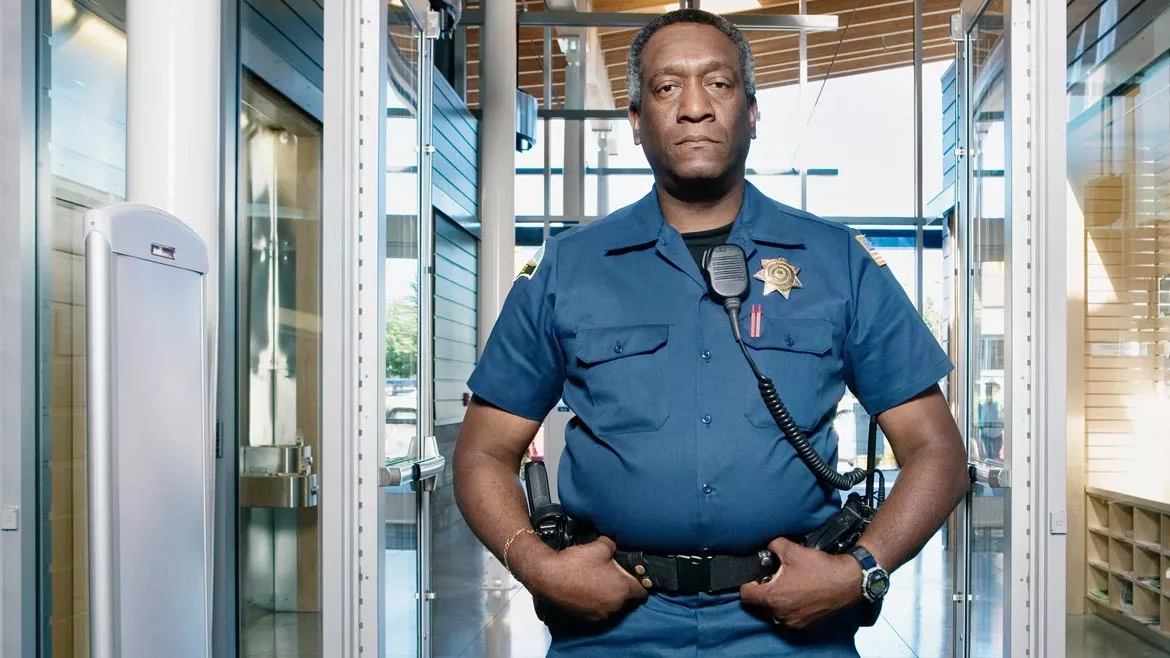Education & Training
Considerations for security officer training in healthcare facilities
Well-trained security officers can proactively deter and de-escalate healthcare security incidents to maintain a safe environment.

Henry Ford is credited with saying, “The only thing worse than training your employees and having them leave is not training them and having them stay.”
This thought certainly evokes emotion and reminds security leaders that the industry needs to invest in people, even if it increases the risk of them leaving their current organization in the future. A high level of training for security officers is required in many sectors, including healthcare environments.
Healthcare professionals must recognize the significance of early intervention when handling patients. Whether it’s a trauma victim in the emergency department, a patient with a chronic illness, or an individual with cancer, early intervention is effective in navigating healthcare resources for the best patient outcome.
Security professionals have a range of compounding responsibilities in the healthcare environment, including protecting people, property and information, as well as providing customer service and upholding the organization’s reputation and mission.
The importance of healthcare security officer training
Healthcare security is most effective when security staff can put their experience and training to use at the earliest signs of concerning behavior. The quality of security officer training is critical to the overall success of the healthcare organization’s security program. Individuals performing security services should be appropriately trained to meet and maintain compliance with regulatory and industry-leading practices.
Trained security professionals are a hospital’s most valuable asset in managing workplace violence instigated by patients, family members, visitors, staff or others. Trained security professionals, for example, are able to identify potential signs of violence, intervene quickly, and mitigate potential safety risks. More importantly, trained officers contribute to a safe and secure environment by demonstrating calm, respectful and non-escalating behavior in stressful situations.
How much frontline security officer training is enough to bring value and benefit the organization, patients, visitors and staff? The answer to this question varies by many factors, including the facility’s geographic location and crime statistics, patient mix (level of trauma/behavioral healthcare), armed versus unarmed officers, and more.
Developing a strong healthcare security training program
Poorly trained security officers may fail to protect patients and staff or unintentionally escalate a situation, which is why a comprehensive security training program is imperative.
- Healthcare security leaders must be sure to answer these key questions when building a security training program at their organization:
- Are there state training requirements for healthcare security officers?
- What training is required for healthcare security officer licensure?
- What training supports the regulatory/accreditation requirements, such as those set forth by the Centers for Medicare and Medicaid Services (CMS), the Health Insurance Portability and Accountability Act (HIPAA), the Emergency Medical Treatment and Active Labor Act (EMTALA), the Patient Safety and Quality Improvement Act of 2005 (PSQIA), the Center for Improvement in Healthcare Quality (CIHQ), Healthcare Facilities Accreditation Program (HFAP), and others?
- What is the emergency department’s patient mix (trauma level, behavioral health, forensic, etc.)?
- Do all officers require certification or specialized training?
- What are the risks of violence based on recent security risk assessments?
- What non-traditional roles will security professionals fill throughout the facility (concierge, patient experience, patient escort, high-risk patient watches, etc.)?
- How are other healthcare organizations in the area delivering security officer training?
The International Association of Healthcare Security & Safety (IAHSS) security officer training guidelines include some of the following recommendations:
- Healthcare security officer job descriptions should identify specific skill levels required as defined by the organization and the security program policies and procedures.
- Training should be relevant to include defined performance objectives and a method to verify competency.
- A healthcare security officer training program should have clearly identified learning outcomes.
- Training should provide a foundation of knowledge in the areas of protection, customer service, public relations, response to calls for service, and proper documentation of security-related events.
- Such training should include verbal de-escalation and voluntary compliance training, as well as detail the organization’s use-of-force policy and related training.
- Security professionals should receive ongoing training, including drills and exercises, to address changes in the environment as well as to learn, improve and further develop their professional skills.
- Off-duty law enforcement providing a security function for the healthcare organization should receive an equivalent level of training. This is particularly important in areas of use of force.
The most effective approach to healthcare security training is to ensure that it is comprehensive, dynamic and relevant. Comprehensive training in the healthcare environment may include training the clinical and security staff together to facilitate team building.
Well-trained security professionals portray a strong sense of confidence and safety to patients, visitors and staff. One thing is for sure, as Henry Ford pointed out, the benefits of training far outweigh the costs.
Looking for a reprint of this article?
From high-res PDFs to custom plaques, order your copy today!






